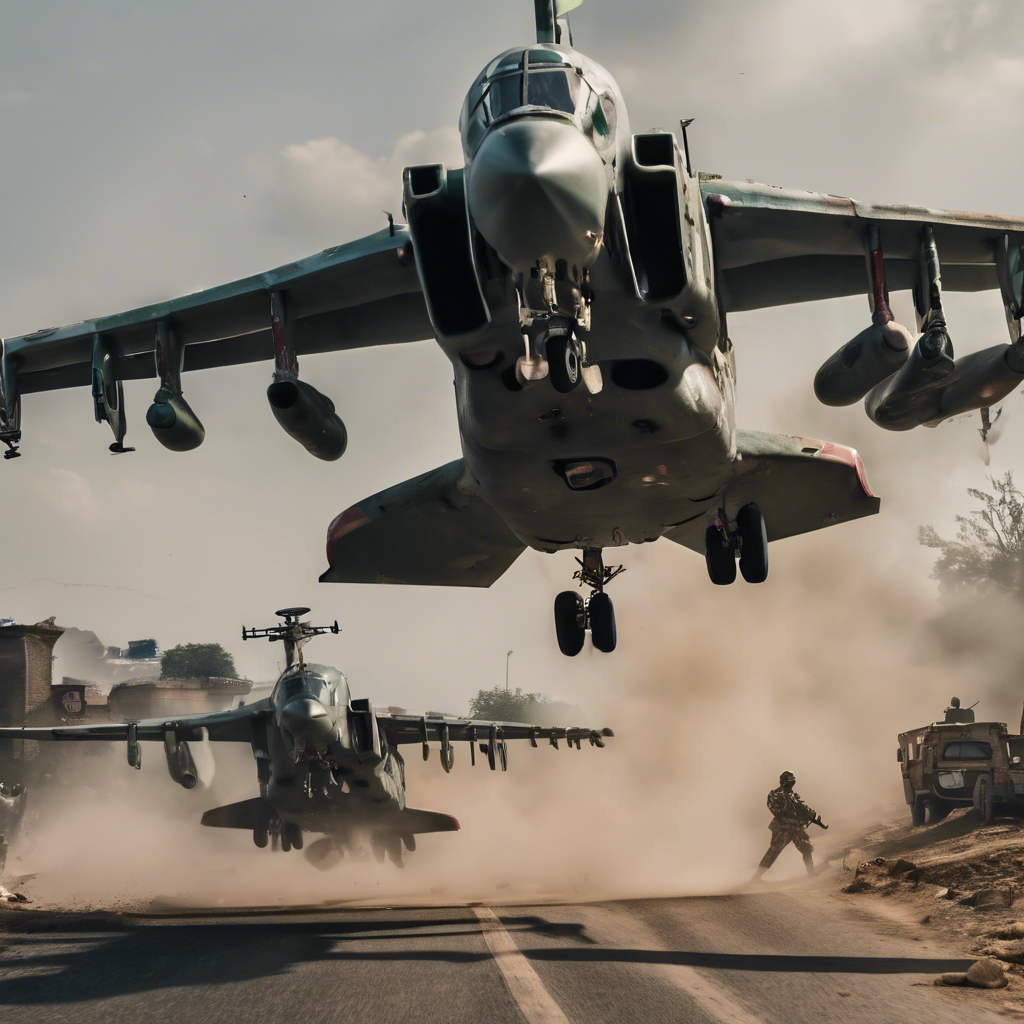India Claims Military Action in Pakistani-administered Kashmir: A New Chapter in Tensions
In a significant escalation of long-standing tensions, India has asserted that it conducted military operations in the disputed region of Pakistani-administered Kashmir, a statement that has reverberated across the geopolitical landscape of South Asia. This bold declaration raises questions not only about military strategies but also about diplomatic relations and the enduring bitter rivalry between the two nuclear-armed neighbors. 🌏
The announcement, made by Indian military officials, claimed targeted strikes against what they described as terrorist launch pads operating from the PK (Pakistani-administered Kashmir). This move comes amid ongoing tensions that have plagued the region since the partition of British India in 1947, leading to multiple wars and a continuing standoff over the Kashmir issue. 📈
A Historical Context of Conflict
The roots of this conflict can be traced back to the partition of India, which left the princely states with the option to join either India or Pakistan. The accession of Jammu and Kashmir to India has led to three major wars and numerous skirmishes, with both nations claiming the territory as their own. The Line of Control (LoC) has become a heavily militarized border, symbolizing one of the world’s most contentious territorial disputes. ✊
According to recent reports, roughly 70% of Jammu and Kashmir is administered by India, while about 30% is under Pakistani control. The population has faced a myriad of challenges due to this conflict, including human rights abuses, economic hardships, and military presence that has created an atmosphere of fear and uncertainty. 📊
Recent Developments: Claims and Counterclaims
The Indian military’s recent operations have been portrayed as a defensive measure against increasing militant activities in the region. Official sources report that these strikes targeted sites used to facilitate cross-border terrorism, a claim that echoes previous justifications for military engagements in the area. However, Pakistan has vehemently denied these allegations, asserting that India is fabricating stories to divert attention from its internal issues, including rising discontent and violence in Indian-administered Kashmir. 🔥
“Such actions can only aggravate the already volatile situation,” said Pakistani Foreign Minister Bilawal Bhutto Zardari, calling for international mediation to address the issue. “We urge the global community to take notice of these escalatory tactics.”
This rhetoric indicates an increasing likelihood of escalation, with both countries on high alert for retaliatory actions. The possibilities are concerning given that both nations possess nuclear capabilities, thereby amplifying the stakes involved. ⚠️
The Role of International Actors
Global powers have taken notice of this recent flare-up, with nations such as the United States and China weighing in on the situation. The U.S. has historically called for both countries to engage in dialogue to resolve their differences, while China has emerged as a key ally for Pakistan, heightening geopolitical complexities. The international community’s role could become crucial in de-escalating tensions or, conversely, in exacerbating them depending on how these major powers choose to engage. 🌍
What Lies Ahead?
As the situation unfolds, both India and Pakistan face the challenge of controlling domestic narratives while managing external pressures. Analysts suggest that the likelihood of extended military engagement might compel both nations to the negotiating table, yet underlying nationalistic sentiments could prove a barrier to diplomacy.
The implications of this latest military claim pose significant questions for regional stability. The potential for conflict remains high, and the human cost of renewed hostilities could be devastating for local populations already enduring years of hardship. 📉
Ultimately, the true test lies in whether both countries can transition from conflict to dialogue, paving the way for a future that prioritizes peace over aggression. As history has shown, the forever-deferred goal of resolution in Kashmir remains elusive, trapped in a cycle of suspicion and reprisal. 🕊️

